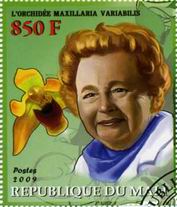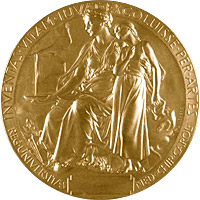|
|
INDEX
People
Abravanel,
Don Isaac
Berg, Gertude (Molly Goldberg)
Berg, Moe
Berle, Milton
Berlin, Irving
Bernstein, Leonard
Brandeis, Louis D.
Cardozo, Benjamin
Einstein, Albert
Elion, Gertrude
Frankel,Jacob
Gershwin, George
Ginsburg, Ruth Bader
Gompers, Samuel
Goode, Alexander
Goodman, Benny
Gratz, Rebecca
Greenberg, Hank
Hillman, Sidney
Hoffman, Jeffrey
Houdini, Harry
Jefferson, Thomas
Karpeles,
Leopold
Lamarr, Hedy
Lazarus, Emma
Lehman, Herbert H.
Levy, Asser
Levy, Uriah P.
Magnes, Judah L.
Meir, Golda
Miller, Arthur
Myerson, Bess
Noah, Mordecai.
Ochs, Adolph
Pulitzer, Joseph
Resnik, Judith
Rose, Ernestine
Rosenthal, Robert
Ross, Barney
Salk, Jonas
Salomon, Haym
Santangel, Luis de
Sarnoff, David
Schick, Bela
Seixas, Gershom M.
Singer, Isaac B.
Stern, Isaac
Straus, Isidor & Ida
Strauss, Levi
Streisand, Barbra
Szold, Henrietta
Torres, Dara
Torres, Luis de
Touro, Judah
Wacks, Mel
Wald, Lillian
Washington, George
Wiesel, Elie
Wise, Isaac Mayer
Zacuto, Abraham
|
 |
|
| |
Medal by Daniel Altshuler (2011), Gertrude Elion, winner of the Nobel Prize in Medicine. |
Gertrude Elion (1918 - 1999)
Gertrude Elion's exceptional accomplishments over the course of her long career as a chemist include the development of the first chemotherapy for childhood leukemia, the immunosuppressant that made organ transplantation possible, the first effective anti-viral medication, and treatments for lupus, hepatitis, arthritis, gout, and other diseases. With her research partner, George Hitchings, she revolutionized the way drugs were developed, and her efforts have saved or improved the lives of countless individuals. Elion stated:"It's amazing how much you can accomplish when you don't care who gets the credit."
Gertrude Belle Elion was born in New York City on January 23, 1918. Soon after graduating from high school, young Gertrude watched her beloved grandfather die painfully of stomach cancer, and deciding:"nobody should suffer that much," she dedicated herself to finding a cure for cancer. In 1937, at the age of 19, Elion graduated from Hunter College summa cum laude and Phi Beta Kappa. Many years later, Elion created a scholarship at Hunter College for female graduate students in chemistry.
Unable to find a suitable position, she began volunteering in a chemistry lab, enduring daily anti-Semitic jokes from the company president but gaining valuable experience. By the end of a year and a half, she was paid $20 a week, out of which she saved enough to enroll at New York University. The only woman in her graduate chemistry classes, she wrote her thesis at night and on weekends while working first as a doctor's receptionist and then as a substitute teacher of high-school chemistry and physics. In 1941, she received her Master's degree.
In June 1944, Elion was interviewed by Dr. George Hitching of Burroughs Wellcome (now GlaxoSmithKline), the pharmaceutical company. Elion was intrigued by Hitchings' research project; and he was impressed by the young woman's intelligence and energy. Over the next decades, the Hitchings-Elion partnership proved immensely fruitful.
 Gertrude Elion and George Hitchings in the laboratory, 1948.
Gertrude Elion and George Hitchings in the laboratory, 1948.After several years of painstaking research, Elion finally developed a compound that interfered with the replication of leukemia cells. Although it was too toxic to be truly effective, it showed that she was on the right track. She continued to experiment, eventually formulating and testing over 100 purine compounds.
Finally, in 1950, Elion synthesized a compound(6-MP) that caused complete remissions in children with leukemia, but a relapse invariably followed. After further research, it was discovered that when 6-MP was combined with later medications, approximately 80% of child leukemia patients would be cured; prior to 6-MP, half of all children with acute leukemia died within a few months.
In 1958, a young British surgeon used 6-MP to prevent temporarily the rejection of a transplanted kidney in a dog. Excited, Elion gave him several similar compounds, in the hopes that one would be even more effective. The following year, he used Elion's drug azathioprine (known as Imuran), to transplant a kidney successfully into a dog named Lollipop. In 1961, doctors used Imuran to perform the first successful kidney transplant between two unrelated humans. Thanks to Elion's work, organ transplantation has become routine today.
After several years of work, the Burroughs Wellcome team triumphantly unveiled acyclovir (Zovirax), the first medication effective against viruses. Elion later referred to acyclovir as her "final jewel.... That such a thing was possible wasn't even imagined up until then." In 1984, the year after Elion retired, her lab developed AZT, the only drug licensed to treat AIDS in the United States until 1991. Although Elion claimed to have had little to do with AZT, her methodology had laid the groundwork for its discovery.

Gertrude Elion commemorative stamp issued by the Republic of Mali in 2009.
In 1964, Gertrude Elion received a call from George Mandell of George Washington University, who said, "The kind of work you're doing, you've long since passed what a doctorate would have meant. But we've got to make an honest woman of you. We'll give you a doctorate, so we can call you 'doctor' legitimately." This was the first of 25 honorary doctorates Elion received.
When it was discovered that one of her drugs was an effective treatment for Leshmaniasis disease, a serious problem in South America, she pushed hard for Burroughs Wellcome to follow up on the matter, regardless of the money involved. As a former colleague remarked, "She has a real social conscience.... In fifty years, Trudy Elion will have done more cumulatively for the human condition than Mother Theresa."
 Nobel Prize in Medicine medal. The design features the Genius of Medicine holding an open book in her lap, collecting the water pouring out from a rock in order to quench a sick girl's thirst. The inscription reads: "Inventas vitam juvat excoluisse per artes" (Inventions enhance life which is beautified through art).
Nobel Prize in Medicine medal. The design features the Genius of Medicine holding an open book in her lap, collecting the water pouring out from a rock in order to quench a sick girl's thirst. The inscription reads: "Inventas vitam juvat excoluisse per artes" (Inventions enhance life which is beautified through art). In 1988, Elion received the Nobel Prize in Medicine "for discoveries of important principles for drug treatment," together with Dr. Hitchings and Sir James Black. Few Nobels have gone to scientists working in the drug industry or those without Ph.D.s, even fewer to women; Elion was only the fifth female Nobel laureate in Medicine, the ninth in science in general. In 1991 she was awarded the National Medal of Science and became the first woman to be inducted into the National Inventors Hall of Fame. Gertrude Elion was inducted into the Jewish-American Hall of Fame in 2011.
This information was excerpted from the Jewish Women's Archive. For a comprehensive bio of Gertrude Elion watch this interview.
Click Here to Take Gertrude Elion Quiz
Go to page: First Page Previous Page
Next Page
|